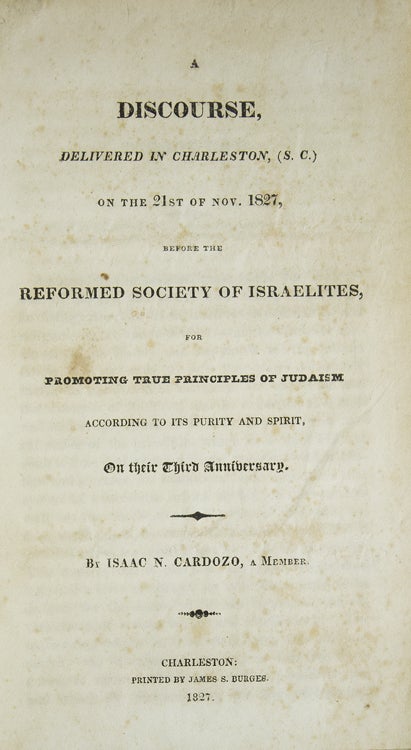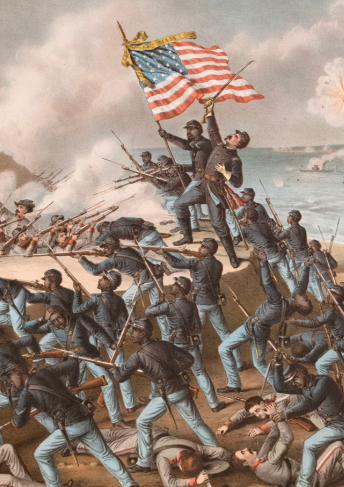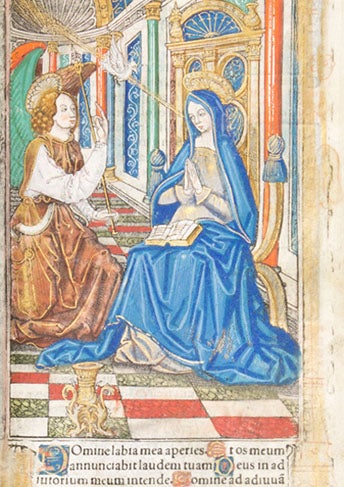
Rarity of American Judaica
A Discourse Delivered in Charleston, (S.C) on the 21st of Nov. 1827, Before the Reformed Society of Israelites, for Promoting True Principles of Judaism According to its Purity and Spirit, on their Third Anniversary.
Charleston: James S. Burges, 1827.
Price: $35,000.00
About the item
First and only edition. 18, [2, blank] pp. 1 vols. 12mo. Rarity of American Judaica. Modern pale yellow wrappers. Custom chemise and quarter morocco slipcase. Some pale foxing to title, otherwise clean. Rosenbach 289 (locating one copy, in a private collection); OCLC (Princeton, Am. Jewish Hist. Soc., USC, Presbyterian College); American Imprints 28385; Singerman 0442.
Item #305824
A rare pamphlet issued by the first Jewish Reform movement in the United States, the Sephardic Reformed Society of Israelites in Charleston, South Carolina, recording an address by one of the movement’s leaders. The Reformed Society of Israelites formed in 1824 when it split off from the Kahal Kadosh Beth Elohim (KKBE) synagogue in Charleston, seeking to implement a number of reforms it deemed crucial to engaging the rising generation. In the process, the Society posited a distinctly American form of practice.
Led by Isaac Harby, Abraham Moise and David Nunes Carvalho the Reformed Society of Israelites reflected the fact that, as Jonathan Sarna has phrased it: “Jews who did not feel at home in synagogue no longer had to compromise their principles for the sake of consensus; they felt free to withdraw and start their own congregations. In free and democratic America, congregational autonomy became the rule, resulting in a new American Judaism - a Judaism of diversity and pluralism.”
The present address was delivered on the third anniversary of the Society by Isaac Cardozo (1786-1855), who served as the group's Vice-President from 1828-1832. Cardozo invokes a "spirit of reform in all existing institutions [which] is abroad" and reminds the group of its origin as "a society that was instituted mainly for effecting the observance of order and decorum in Hebrew worship: for adapting it to the feelings and propensities of the enlightened Israelite of the present day; and for endeavoring to bring about by argument and petition, what neither necessity nor persuasion could before accomplish," before he goes on to defend the mission against various critiques.
Apart from being a leader within Charleston’s Sephardic Jewish community, Cardozo was also the patriarch of an important southern African-American family. He had six children with his common-law wife Lydia Weston, a free black woman from a prominent Charleston family––one of a number of openly mixed-race households in antebellum Charleston. One of their sons was Francis Cardozo (1836-1903), who became the first African-American to hold statewide office in the United States, serving as Secretary of State in South Carolina from 1868 to 1872. Another son, Thomas, served as State Superintendent of Education from 1873 to 1876.
RARE: OCLC reports only four institutional copies, and A.S.W. Rosenbach, in his American Jewish Bibliography, located only one copy, in a private collection.


